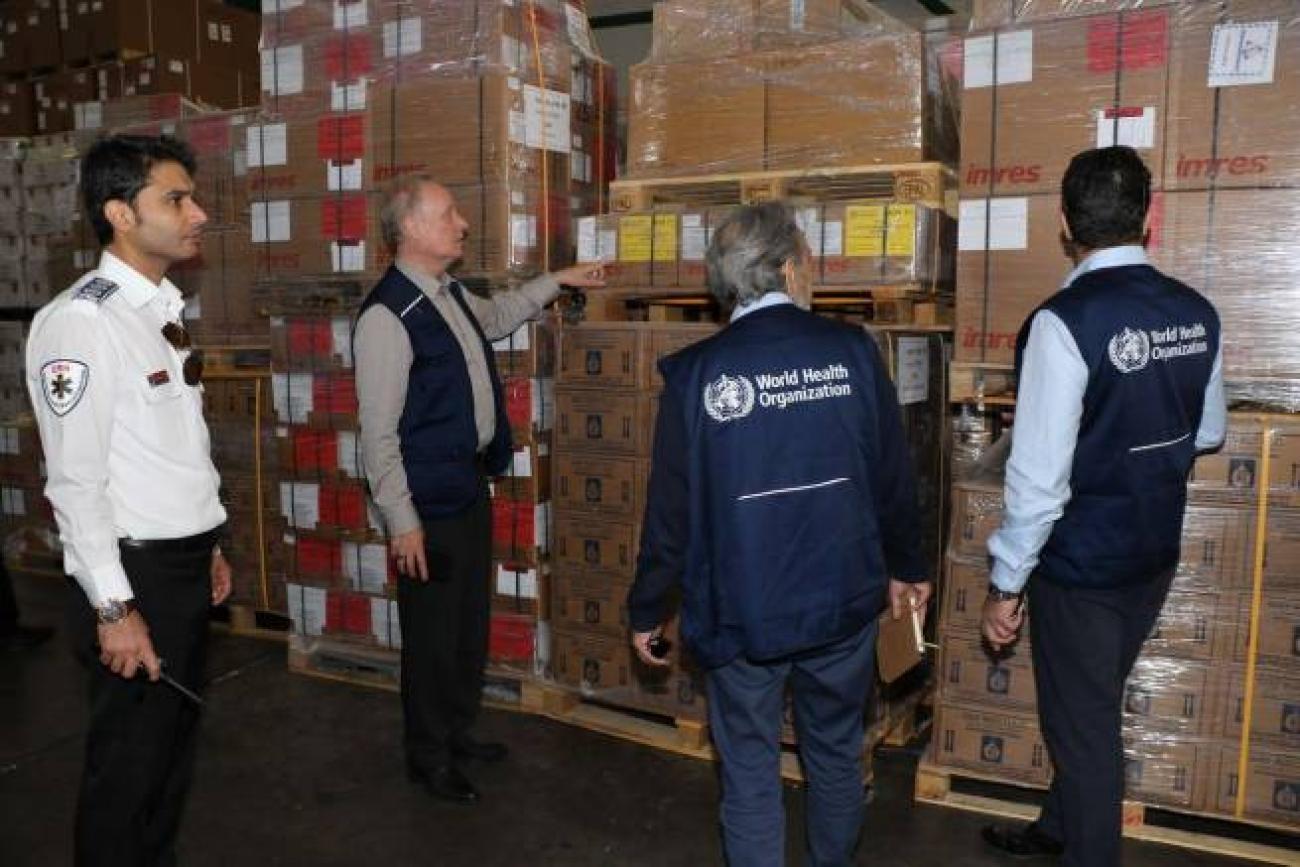The World Health Organization (WHO) airlifted essential medical supplies to the Islamic Republic of Iran to respond to the growing health needs of thousands of people who have been displaced as a result of the flooding in many provinces in the country. The supplies include trauma, health, cholera and non-communicable disease kits and other commodities requested by the Ministry of Health and Medical Education.
According to an official statement by the Emergency Operations Centre of the Ministry of Health and Medical Education, 1,660,100 individuals are in need of health care services in areas where the floods have left 78 people dead and 1,137 injured. As many as 295,787 people have been displaced.
Extreme rainfall which began on 19 March has led to flooding in 28 out of 31 provinces affecting 42,269,129 inhabitants in 253 cities and causing widespread damage to municipal facilities, including health centres and hospitals. Many health facilities in affected areas are either fully or partially damaged, and the risk of water- and vector-borne diseases, including malaria, cholera and other communicable diseases is increasing, also due to the interruption of the water supply.
In 17 of the most severely affected provinces major damage to the health infrastructure has been reported, with 577 health houses, 52 health centres, 201 comprehensive health centres, 70 emergency medical services stations, 24 clinics and 43 hospitals affected.
“Together with the United Nations country team led by the UN Resident Coordinator Ms Ugochi Daniels, WHO will continue to provide full support to the Ministry of Health and Medical Education and the people in Islamic Republic of Iran to address urgent health needs and undertake recovery measures. We call on the international community to make further funding available. We want to express again our deep condolences to all of those who have lost loved ones and will do our best to provide assistance to those in need,” said Dr Christoph Hamelmann, WHO Representative in Islamic Republic of Iran.
Dr. Pirhossein Koulivand, Director of the National Emergency Medical Services (EMS) underscored that given the widespread flood damages in most parts of Iran, the EMS has been serving flood victims with all logistical and personnel capabilities, and international assistance like the one from WHO can complement these actions.
“From the first day of the flooding, WHO has led and coordinated the health response of the UN country team in support of the Ministry of Health and Medical Education. A number of health coordination meetings with national and international counterparts have been convened to identify the urgent needs of affected populations,” said Laleh Najafizadeh, Coordinator of the WHO Health Emergency Programme at the WHO country office in Islamic Republic of Iran.
The WHO Health Emergencies Programme is committed to saving lives and reducing suffering during times of crises whether caused by conflict, disease outbreaks or environmental disasters and leads and coordinates the response of all international health partners to contain disease outbreaks and provide effective relief and recovery to people affected.







